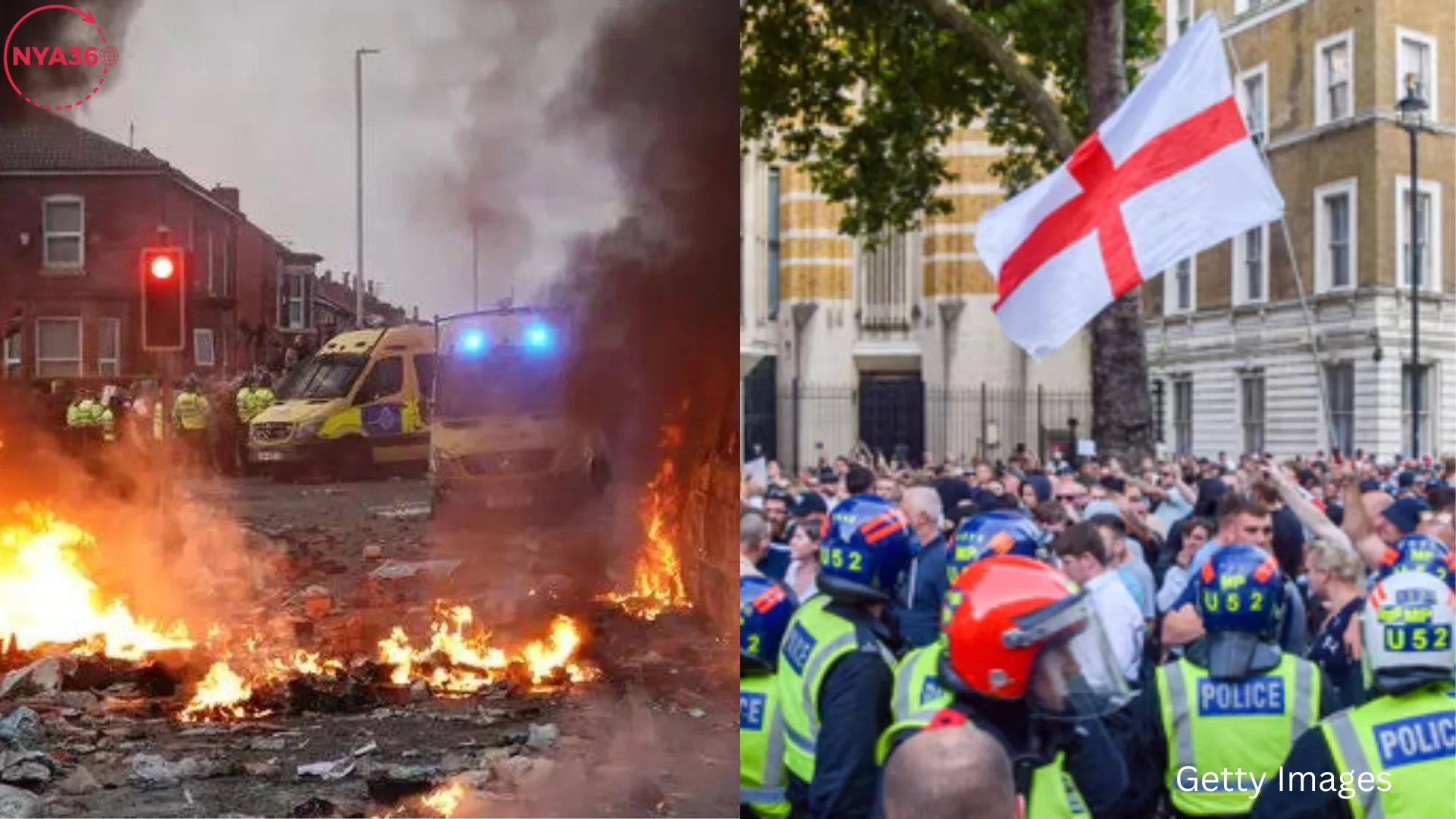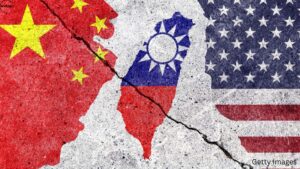Sunderland is experiencing unrest and widespread violence around the nation. The United Kingdom is currently undergoing a significant increase in violent protests, as extremist right-wing organizations and individuals opposing the Muslim community persistently engage in confrontations with law enforcement authorities. After three consecutive nights of anti-Muslim riots in Sunderland, the situation has worsened, with outbreaks of violence occurring in several cities throughout the UK, including Liverpool, Manchester, and London. The initial turmoil, triggered by the Southport deaths, has now escalated, resulting in casualties and widespread chaos.
Sunderland has been the epicenter of the latest wave of anti-Muslim violence. In this northeastern city, there has been a surge of violence characterized by crowds engaging in destructive behavior on the streets, leading to a total of eight casualties, including three police officers. The unrest has been marked by the hurling of bricks and other objects at law enforcement, resulting in substantial property damage and posing a grave threat to public safety. The origins of this turmoil can be attributed to increased tensions that arose after the Southport killings, which far-right factions have used to incite anti-Muslim sentiment. The executions have served as a focal point for various factions, prompting them to mobilize in significant numbers, resulting in clashes with law enforcement and opposing demonstrators.TakeTurn
The violence that originated in Sunderland has spread beyond the city’s boundaries. The development of the phenomenon has extended to other prominent metropolitan areas, such as Liverpool and Manchester, where comparable instances of disorder have transpired. Far-right demonstrators in many urban areas have engaged in confrontations with law enforcement, leading to a significant number of casualties and detentions. The ongoing violence in Liverpool and Manchester has exacerbated the strain on police resources, as law enforcement authorities grapple with containing the disturbance and averting any potential escalation.
In London, the atmosphere remains fraught as law enforcement makes arrangements for conflicting demonstrations by pro-Palestinian and anti-immigration factions. The capital city has a long-standing history of being a focal place for such demonstrations, and officials are adopting a cautious approach to ensure safety. The police have implemented thorough strategies to effectively handle the anticipated large gatherings and proactively deter any potential outbreaks of violence.

The anticipated pro-Palestinian demonstrations are likely to attract substantial crowds, particularly due to recent advancements in the Israeli-Palestinian conflict. These protests frequently attract a wide range of individuals, including those who support human rights and peace in the Middle East. Nevertheless, the inclusion of anti-immigration demonstrators introduces an unpredictable factor to the situation, heightening the likelihood of confrontations between the conflicting factions.
The UK police are confronted with a formidable challenge in effectively handling the extensive unrest and thwarting any additional acts of violence. The confrontations with extremist demonstrators have shown the difficulties that law enforcement encounters in preserving public order amidst these tumultuous periods. The injuries suffered by police officers in Sunderland highlight the hazards associated with these operations.
In response to the issue, law enforcement has augmented its presence in the impacted regions and is employing various strategies to scatter gatherings and avert any additional escalation. This encompasses the utilization of riot gear, equestrian units, and tactical positioning of law enforcement personnel at crucial sites. Notwithstanding these endeavors, the magnitude and fervor of the protests have posed challenges in fully reinstating order.
The recent surge of protests and violence carries substantial ramifications for UK society. The far-right protests and anti-Muslim upheavals are indicative of profound societal divisions and escalating tensions inside the nation. These occurrences have highlighted the problems of racism, xenophobia, and the difficulties of multiculturalism Take Turnsm in contemporary Britain. The government’s response to the disturbance will be carefully examined. Authorities must strike a delicate equilibrium between the imperative to preserve public order and the safeguarding of democratic rights, such as the freedom to gather and express oneself. It is crucial to exercise caution while deploying police to handle protests to prevent the escalation of tensions and violation of civil freedoms.

Given the recent acts of violence, there have been appeals from different sources for the coming together and exchange of ideas. Public figures, including community leaders, activists, and politicians, have implored the general population to repudiate feelings of animosity and aggression, and instead pursue nonviolent resolutions to their complaints. There is an increasing acknowledgment that effectively dealing with the underlying reasons for the unrest goes beyond simply responding with law enforcement measures. It entails actively engaging with the communities impacted and making genuine efforts to foster comprehension and reconciliation.
The United Kingdom is currently at a critical juncture, confronted with the task of reconciling a fragmented community and cultivating a feeling of cohesion in response to the growing prevalence of extremism and intolerance. The latest protests highlight the pressing necessity for coordinated efforts to tackle these problems and establish a nation that is more inclusive and harmonious.
Follow us on social media: Instagram, Threads & Twitter X @nya360_ YouTube & Facebook @nya360.





